It’s quite a title sequence. Puccini swells on the soundtrack and words flash before your eyes. ‘Ecstatic!’ ‘Spellbound!’ ‘Passionate!’ ‘Dazzled!’ Champagne fizzes, ballerinas pirouette; for some reason Bryn Terfel hovers in the roof of the Floral Hall. The Royal Opera House is back in the game, bringing the uplift of live music-drama to an opera-starved Britain, and if you’re watching it online, the only remaining question is whether the offering on stage can possibly live up to the energy, colour and sheer affirmation of the Royal Opera’s on-screen intro.
Don’t be silly. What we get is New Dark Age — a double bill that takes its name from its second half, the latest creation of director Katie Mitchell. Let that title sink in for moment. Once, the term ‘Dark Age’ implied centuries of slaughter, pillage and civilisational collapse. Now — well, one treads carefully, because 2020 has not been anyone’s idea of an unalloyed good time. But as a rule of thumb, if you can still stream live contemporary opera into your home at £16 a pop, you’re probably not living through the Sack of Rome.
Either way, the title did no favours at all to the first half of the evening: The Knife of Dawn, an opera by Hannah Kendall to a libretto by Tessa McWatt about the Guyanese poet and anti-colonial activist Martin Carter. Carter, sung and acted with uncompromising intensity by Peter Braithwaite, lies in his prison cell, on hunger strike. A solitary harp glints its way through harsh, sporadic ambient sounds as Kendall sketches the bones of an atmosphere: the slowed-down sound of time ticking, water dripping; light catching on the barest knife-edge of hope.
An inner dark age, perhaps; but Carter’s struggle is approaching its resolution, one way or another, and the power of The Knife of Dawn lies in its refusal to pretend that the coming dawn will be any easier than the night. The banalities of activist agitprop — ‘There is racial division in the Party!’ — give way to something more ambiguous. No Fidelio–like liberation here. Braithwaite handles Kendall’s austere vocal lines deftly and clearly, giving a disturbing sincerity to Carter’s increasingly lurid fears. Jagged eruptions from a small string ensemble make it even more tempting to succumb to the solace of an offstage chorus sweetly, insidiously repeating that ‘Starvation will be your best poem yet’.
Director Ola Ince sets the whole thing in near-darkness, with just a shifting row of cages and a prison bed. Occasionally a tiny paper boat glides by: creativity, innocence and escape in one fragile symbol. On screen, it was very effective, and together with Jonathon Heyward’s taut conducting, the whole thing came across as something born of the moment — a single cast member, minimal staging, a small orchestra — that could hardly have been done better pre-Covid. Now let’s see the Royal Opera present a full run on the main stage once normality resumes.
The four mini-dramas presented as 4/4 are a slightly different case. It’s hard to imagine Handel’s Apollo and Daphne or Britten’s Phaedra being produced at the Royal Opera under normal circumstances, and even harder to see why you would ever want to stage works like Barber’s Knoxville: Summer of 1915 or H.K. Gruber’s Frankenstein!!. But as an ad hoc operatic goodie bag it certainly contained some treats. It’s easy to forget just how good Handel sounds on modern instruments.
The show-stealers were Christine Rice — her facial expressions as terrifying as her voice in Deborah Warner’s ice-and-fire staging of Phaedra — and Allan Clayton, acting as if some high-camp diva had been downloaded into the body of Ozzy Osbourne as he crooned, gargled, shimmied and (occasionally, gloriously) sang his way through Frankenstein!!, an extended musical joke that usually gets very old very fast. Not here. That was reserved for Mitchell’s second half of New Dark Age — a patchwork of vocal pieces by Missy Mazzoli, Anna Thorvaldsdottir and Anna Meredith, sung by Nadine Benjamin, Anna Dennis and Susan Bickley while a big screen showed a slow-motion film of each singer commuting in to Covent Garden.
Unintegrated video is a treacherous partner for live performance — unimaginative visuals can easily overpower even singing as luminous as this. In the theatre you could presumably choose where to look; online you were stuck with endless footage of the cast boarding trains or portentously applying their facemasks.
I liked the bit where Benjamin walked down St Martin’s Lane, particularly when they cut it so you didn’t catch even a glimpse of English National Opera at the Coliseum. Top trolling. Otherwise, it felt like a particularly limp black-box video installation at a contemporary art gallery. You wander in, catch the glances of the unhappy souls already watching, and realise that unless you want to look like a dolt, you’re trapped for the duration. Fifty minutes you’ll never get back.
Got something to add? Join the discussion and comment below.
Get 10 issues for just $10
Subscribe to The Spectator Australia today for the next 10 magazine issues, plus full online access, for just $10.
You might disagree with half of it, but you’ll enjoy reading all of it. Try your first month for free, then just $2 a week for the remainder of your first year.

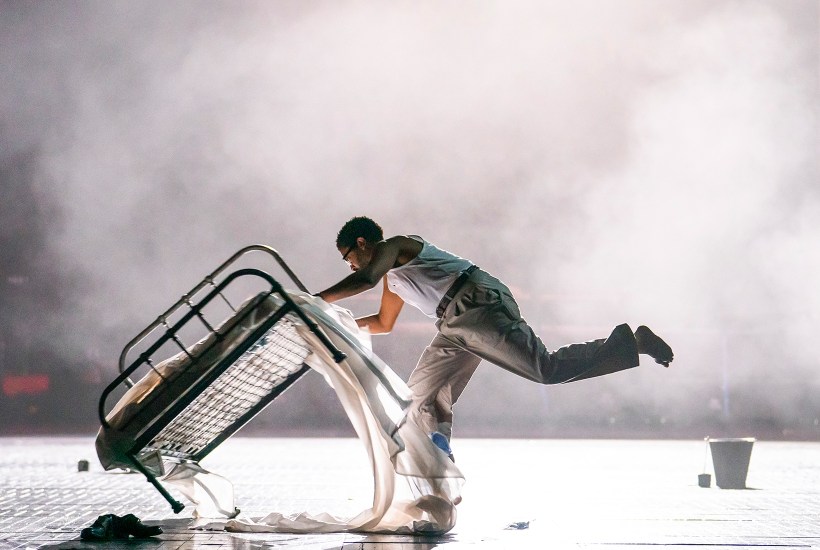

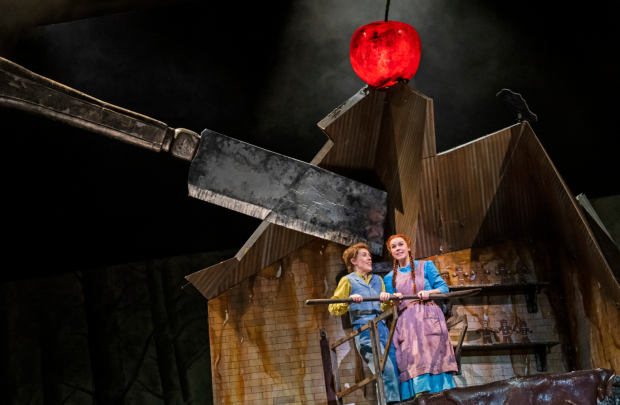
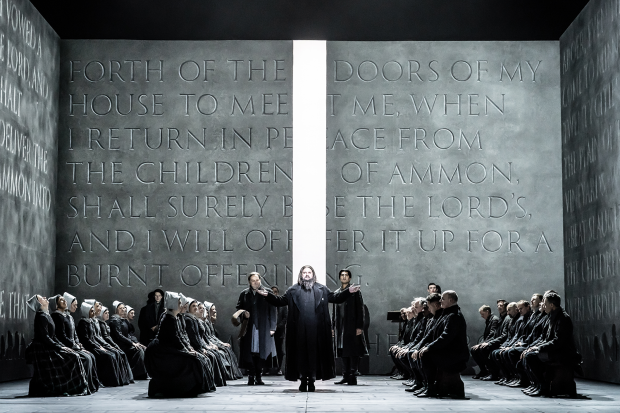
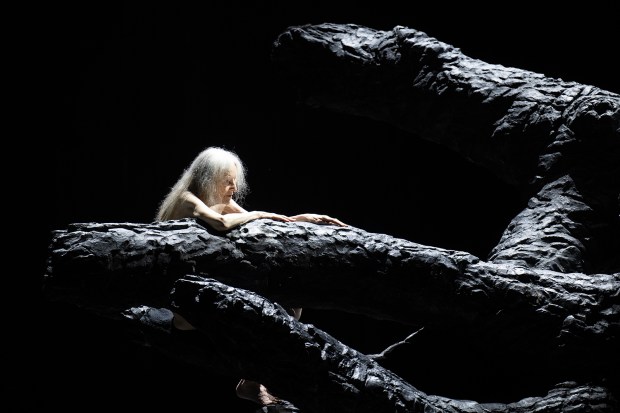
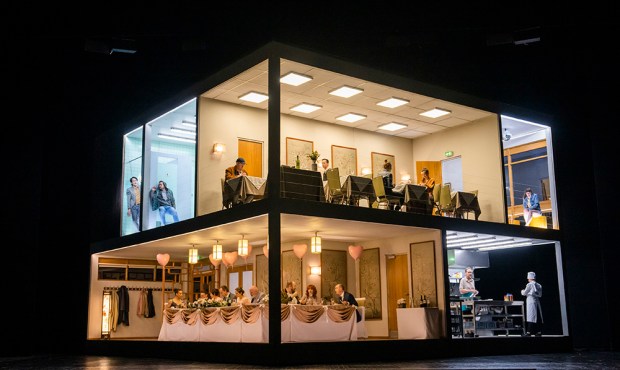
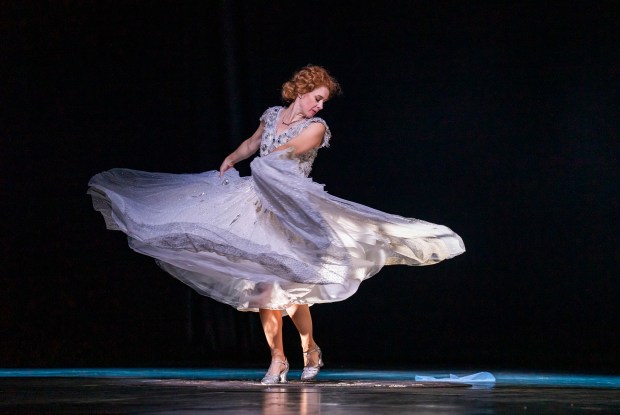






Comments
Don't miss out
Join the conversation with other Spectator Australia readers. Subscribe to leave a comment.
SUBSCRIBEAlready a subscriber? Log in